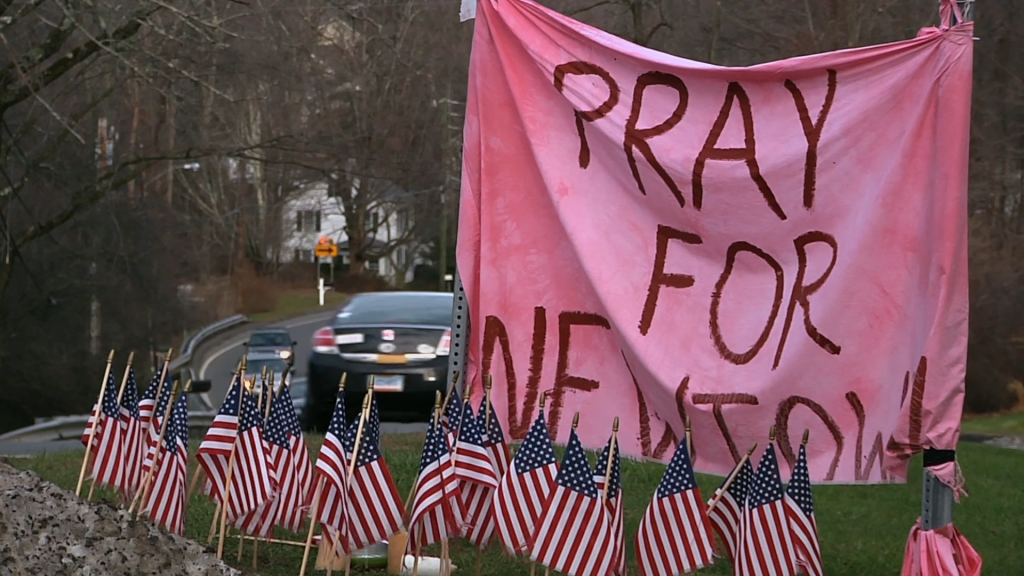When mass trauma strikes, faith leaders are called upon to guide and sustain communities through the aftermath. Their role is to help us heal.
But who heals the healers?
Project Description
Healing the Healers is a new media resource intended to support clergy, laity, social workers, first responders and other faith leaders facing community-level trauma. In the first five parts of an ongoing video series, Rev. Matthew Crebbin begins an important conversation with colleagues in which they acknowledge the unique stress they face in the aftermath of community trauma.
Rev. Crebbin is the Senior Minister of the Newtown Congregational Church in Newtown, CT. On December 14, 2012, his life, along with those of his family, his congregation, and everyone in the town, was changed by the horrifying shooting at Sandy Hook Elementary School. His mission in this series has a dual focus: both to learn about and better understand the mid-to-long term effects of such traumas on faith leaders who, like him, have gone through such an experience, and to help educate and prepare other faith and community leaders who may be faced with such events in the future.
Rev. Crebbin begins this series of intimate, powerful conversations within the Newtown faith leader community and then widens the circle to include other faith leaders who’ve experienced mass trauma, either suddenly, as at Newtown or during 9/11, or through ministering to a community facing chronic violence, such as Hartford, CT, or Ferguson, MO. Healing the Healers is an ongoing journey in which each conversation leads to another, and an essential resource as faith leaders increasingly face the call to lead their congregants through tragedy. The series is accompanied by written reflections by scholars, clergy and other experts, as well as discussion questions and worksheets that we hope will be useful to you.
Healing the Healers is a living project; Odyssey Impact™ will continue this journey by adding additional videos and reflections that will continue to engage necessary voices and faith perspectives from across the country. We welcome you to join our widening conversation, and we hope that this first video series will inspire you to begin your own conversations about preparedness and self-care in the face of trauma.
Project Journey

On December 14, 2012, Rev. Matthew Crebbin’s life, like that of so many others, was forever changed when he got word of the shooting at Sandy Hook Elementary School. In a close-knit community like Newtown, everyone felt the sudden trauma of this horrific act of violence, and the national media focus on the town’s tragedy exacerbated their suffering. Rev. Crebbin and the other faith leaders of Newtown immediately went into crisis mode, trying to support bereaved families, survivors, emergency workers and community members, all while dealing with the onslaught of media and managing their own grief. Six years after the Newtown shooting, Rev. Crebbin is still coming to terms with it; he describes the healing process as “like learning to dance again, only with a limp.”
According to the nonpartisan Gun Violence Archive to date, there have been 1,862 mass shootings in the United States since the Sandy Hook Elementary School shooting occurred. These mass shootings have killed 2,071 people and left 7,852 injured. Further, rampant and chronic gun violence continues to plague urban and rural areas, and community-wide trauma after terrorism, such as 9/11 or the Boston Marathon bombing, leave us all on edge questioning our safety and looking for solace, regardless of whether we were directly affected. These crises put critical demands on faith leaders, who must sustain their congregations, themselves and their families. What does sustainable self-care look like for those called to minister to others? How do they replenish their own wells in effective ways?
In the films, Rev. Crebbin asks questions that evoke informative answers and discussions, touching on themes that include: what faith leaders need to do to maintain self-awareness and practice self-care; the impact of trauma on families of faith leaders; how to live with the stress of continual community trauma (e.g. in the face of chronic gun violence or addictions); conflict with congregations while moving through stages of trauma; re-traumatization in the face of the rising number of mass shootings; struggling with faith when faced so closely with evil; building trauma-informed ministries; and living with what some experts call ‘new wisdom.’
The episodes explore the key steps that faith leaders have found essential in their recovery from trauma: acknowledging it, examining the unique symptoms it causes, embracing support from colleagues, family, and trained professionals, and exploring ways to recover and move towards healing. Healing the Healers is available as a subscription series. Each episode is accompanied by a scholar-written essay that expands on its themes, as well as discussion questions that viewers, faith leaders, clergy, chaplains, teachers and presenters will find essential both for themselves and in their work with students, community and congregations.




